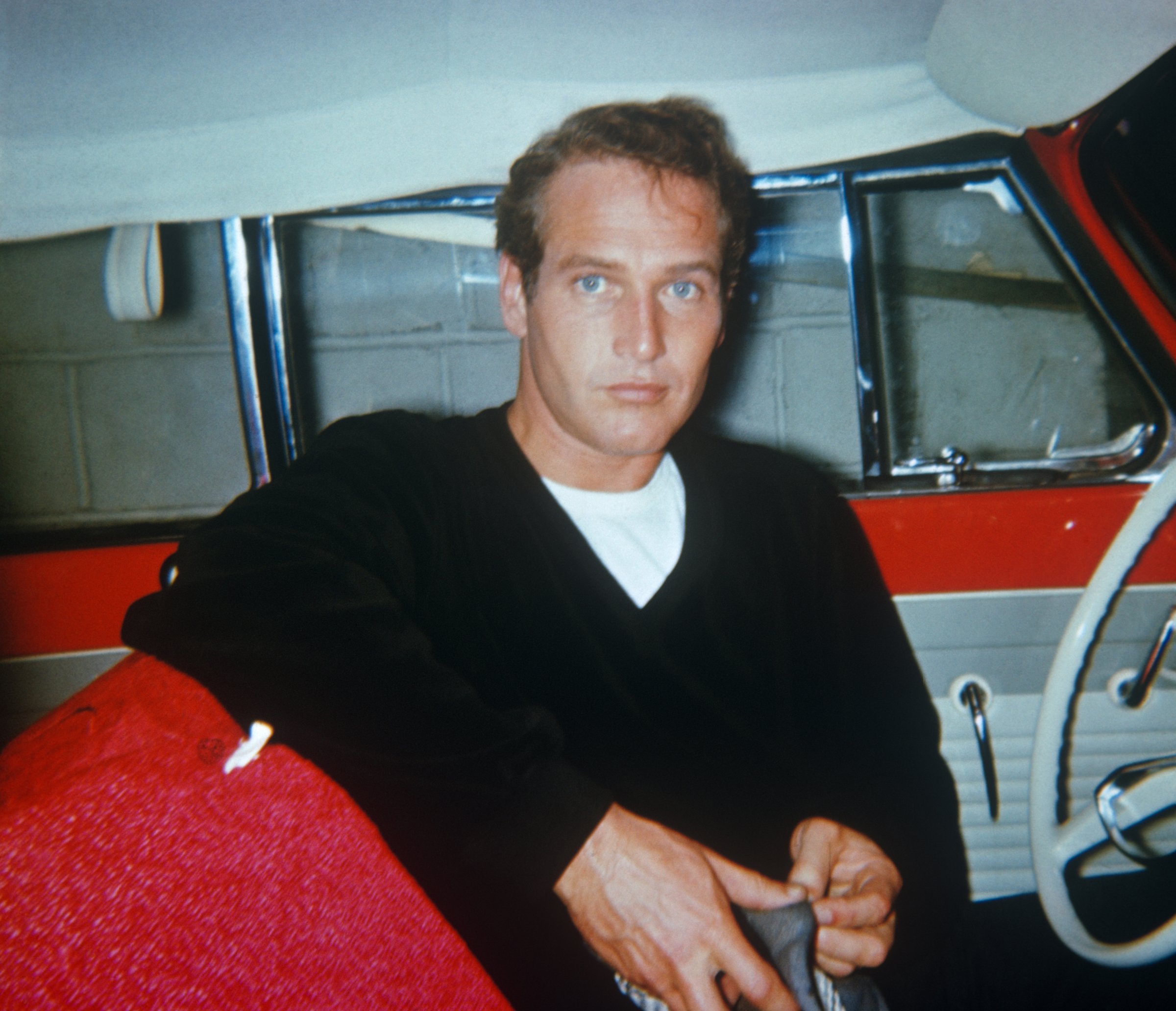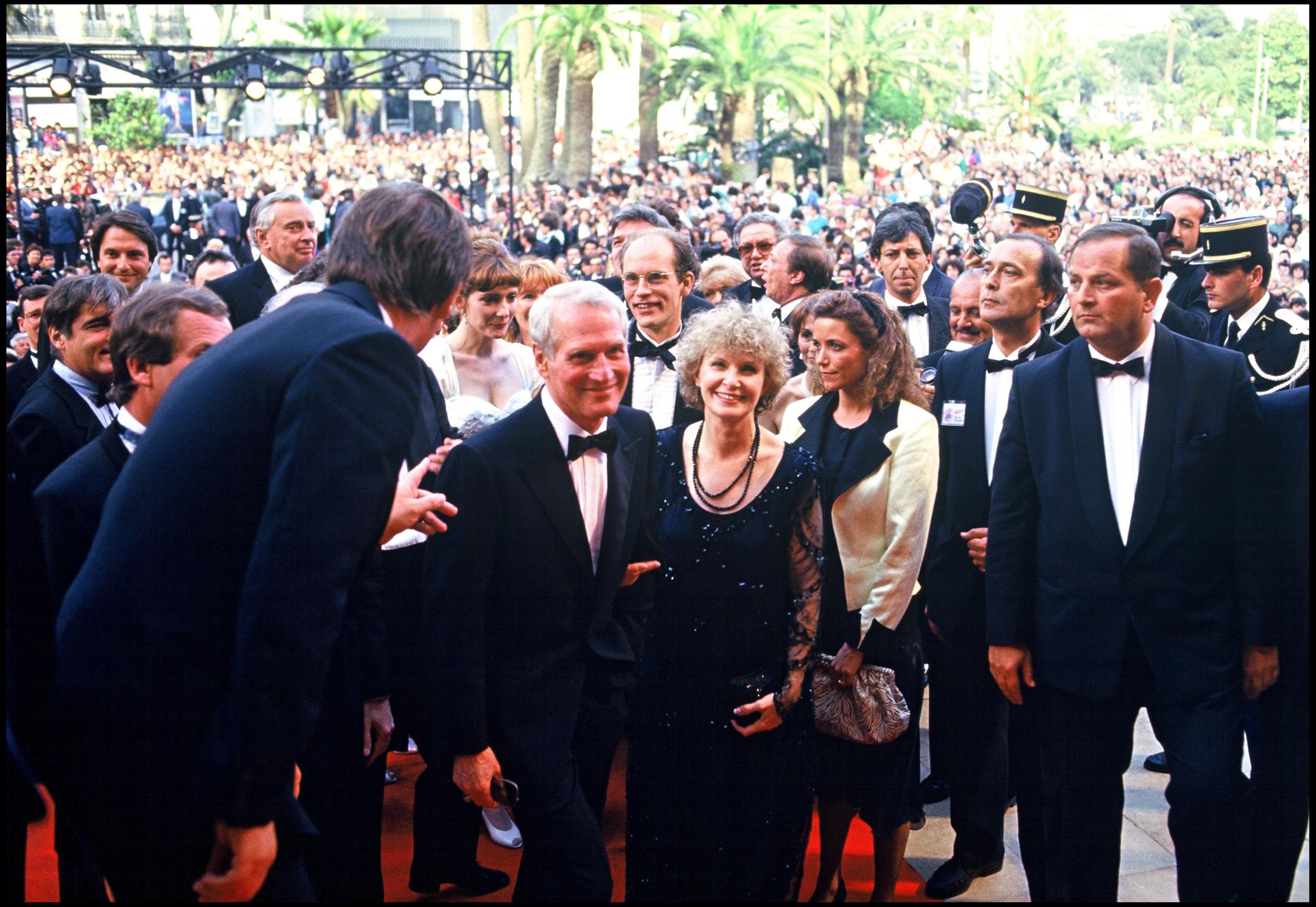
These are independent reviews of the products mentioned, but TIME receives a commission when purchases are made through affiliate links at no additional cost to the purchaser.
In an excerpt from the actor’s posthumous memoir, The Extraordinary Life of an Ordinary Man, Paul Newman reflects on the meaning and impact of celebrity.
Smiling for the cameras is a smile that doesn’t come from anywhere except a command; there’s no mirth in it. When Joanne and I have been at Cannes, for example, walking up this flight of stairs with a 15-foot-wide red carpet and having that music from Star Wars or whatever the hell it is at decibels that fry your eardrums . . . Well, you get a sense of what the kings of England must have felt at their coronations. And then you start to think, “They should do this for me once a day, hustle me in, get the trumpets, cue the cameras and the applause and the band,” just to get your confidence back. Between the bathroom and the breakfast room, every day when you come down from your shower, you could start your day with the f-cking fanfares and flashbulbs going off. The dichotomy is that it is a dream and a nightmare at the same time.
When Joanne and I went to Paris to shoot a few scenes of Mr. and Mrs. Bridge there were photographers at the airport, and Joanne said to me: “Don’t be a jerk. Pose for them and then they’ll leave us alone.” So you agree to stand there and smile for a minute or two, hold your wife’s arm, etc. and you tell them, “I’ll see you, goodbye.” Then you walk to your car and about two-thirds of them follow and do exactly what you thought you were getting away from. They honor nothing, and they even chase the car.
We pull up to the Ritz, and the same bunch of photographers are there. What was the advantage of my posing at the airport? I’m now in an absolute fury and I head into the hotel manager’s office and say, “You’ve got to give us some way to get in and out of here. I need a back door that we can use in the morning.” Especially because once I actually get away from the Ritz, I can put on a baseball cap and no one will know me; Joanne and I can go wherever we want. By now I’m using foul language with the Ritz staff: “You make those f-cking guys leave us alone!”
Read More: The Last Movie Stars Traces the Legacy of Paul Newman and Joanne Woodward in Six Dazzling Parts
They finally showed us an old service elevator that had a sort of French-doors-type window that you can get out of that lands you in a backstreet behind the hotel. We were game. So Joanne and I get up the next day, ready to escape, and we noticed there wasn’t a single photographer in sight at the entrance. So after my terrible outburst, I felt like such a schmuck.
One reason I always thought Brando was interesting was that in the world of actors, he initiated an attitude that in no way catered to the hierarchy of the Hollywood studios. The bosses, the gossip columnists, the publicity folks: he was the first who broke away from what everybody had considered a necessity—the interviews, the ass kissing, the “movie etiquette.” Marlon took a stand that these rules did not apply to him, that they were foolish, sappy rules. And he ended up leading the parade of other actors who felt the same way.

I know some people resent that I won’t sign autographs or pose for them—or even offer a stock answer besides no. But do you have to manufacture a response to their silliness and repeat that response on every occasion it happens? Doesn’t a person run out of patience after four or five times of this?
It would make my life a lot easier if whenever someone stopped me on the street and asked, “Ooh, let me take your picture,” I said OK. But that would draw another 12 people over, and that would draw some more people, and you stand there signing autographs while politely asking them about their mother and father.
If I could do that and didn’t care, it would be terrific. I’d feel a lot better at the end of the day.
I wish I could, but I can’t. But I also wish I could ski. And I wish I could play tennis well. I wish I could do lots of things, but I can’t—and that doesn’t make me a bad person.
Here are two stories that illustrate what I’m talking about. I had strongly supported Jimmy Carter’s 1976 campaign, and in the early part of his presidency I was appointed one of the U.S. representatives to the U.N.’s disarmament conference.
One afternoon I was visiting the White House with some acquaintances of mine from the National Security Council. I was walking down a hallway when I literally bumped into the President.
“Why don’t you come up with me to the Oval Office?” Carter asked. I followed him upstairs, and let me tell you, what transpired was pretty uncomfortable. I’m not very at ease around people with power, never have been. But while I wanted to know why he’d recently decided not to address the U.N. himself on this issue, each time I raised the subject, all the President wanted to know was one thing: how movies were made.
Flash forward to around 1982. By then, I was deeply involved in car racing, truly loving that it was a world away from the film business and Hollywood.
I had flown out to the track in Brainerd, Minn., for a Trans Am race, one of my first professional competitions. It was still a novelty that a movie actor was racing, so not unexpectedly there were photographers everywhere. As we were all finally just about ready to begin, the track marshals began clearing everybody away from the cars and racers. But just as it was getting down to “Gentlemen, start your engines,” there was one photographer who just kept clicking off shots of me, retreating for a minute, then darting back on the track like a bird.
Now, I don’t want to blow this out of proportion, but this was the period before any race when you like to get rid of all the extraneous distractions and concentrate on what you have to do: thinking through your strategy, how you want to start, what car’s in front of you, what’s its horsepower, and where can you get an advantage—catch them in the first turn, say, sneak in a little late? This is when a driver really wants to center himself, and here’s this photographer sticking his camera almost up my nose, clicking, running off, darting back on, and finally disappearing.
After the race was over and I was done being interviewed and everyone was packing up, I spotted the photographer and said, “I really want to ask you something. Why was it that you wanted to shoot me so badly that you had to keep coming back and irritate me, invade my space, and just do one more thing to make your presence felt?”
“You really want to know?” the photographer answered. “Yes, I really want to know.”
“Okay,” he said. “Because I thought I might get the last picture of you alive.”
Excerpted from The Extraordinary Life of an Ordinary Man, compiled and edited by David Rosenthal. Copyright © 2022 by Joanne Woodward Newman. Published by arrangement with Knopf, an imprint of The Knopf Doubleday Group, a division of Penguin Random House LLC.
More Must-Reads from TIME
- Donald Trump Is TIME's 2024 Person of the Year
- Why We Chose Trump as Person of the Year
- Is Intermittent Fasting Good or Bad for You?
- The 100 Must-Read Books of 2024
- The 20 Best Christmas TV Episodes
- Column: If Optimism Feels Ridiculous Now, Try Hope
- The Future of Climate Action Is Trade Policy
- Merle Bombardieri Is Helping People Make the Baby Decision
Contact us at letters@time.com